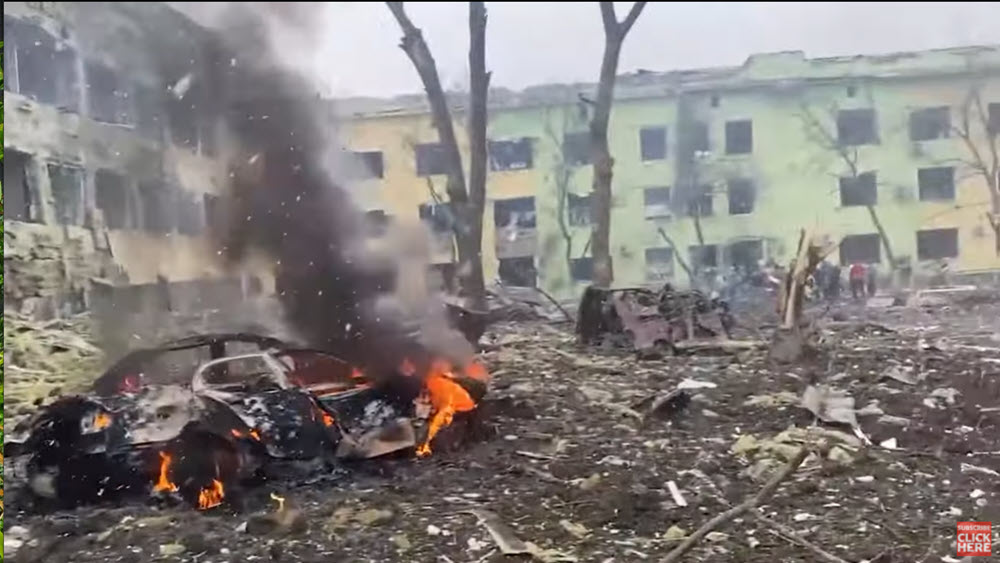What’s happening in Ukraine is not genocide
What’s happening to Ukraine’s civilian population is terrible and tragic, but it’s not genocide.
You’ve probably noticed the word “genocide” being thrown around with abandon in Ukraine. President Zelensky, who is Jewish and whose grandfather lost his family to the Holocaust, used it just recently:
Ukrainian President Volodymyr Zelensky on Wednesday said Russia’s bombing of a maternity hospital was evidence that Russia is carrying out genocide against Ukrainians, and called it a turning point.
He admonished Western leaders for cowardice and raged at Russia for its assault on his country’s civilians.
“Dropping a bomb on a maternity hospital — it’s the final proof that what is happening is genocide of Ukrainians,” he said.
I don’t mean to diminish the horror of what’s happening to the Ukrainian people. Believe me when I say that my heart bleeds for them. And I truly have a “there but for the grace of God” feeling every time I see or read the news about them because they are a reminder of how fragile civilization is. All of us can go in two weeks from comfortable lifestyles to being bombed, shot, starved, or turned into a refugee. Just two weeks…. It’s a terrible thought.
But it’s not a genocide. Genocide is when someone states that he intends to eradicate a specific race from the face of the earth and then puts that intention into action. Hitler demonized the Jews and then set about collecting every single Jew in Europe for the specific purpose of slaughtering them (after first working them to the point of death). In Prague, he had his troops spared a single synagogue as a museum of the race he successfully erased. That’s a genocide — deleting a human race from the gene pool.
That’s not what’s happening in Ukraine. What’s happening in Ukraine is traditional warfare: Raining death on a civilian population to force their surrender.
This is not a new topic for me. My mother, a Dutch citizen, spent December 1941 through August 1945 in a Japanese concentration camp in Batavia (modern Indonesia). It was a horrific experience and it was so integrated into my mom’s circuits that she was unable to process any life experience without filtering it through her time in camp. In some ways, she remained a prisoner until the day she died. My mother was also a drama queen.
Yet despite all that, when some of the people who heard her story (and everyone did) tried to liken it to the Holocaust, Mom always pulled back. It was not genocide, she said, because the Japanese did not intend to erase the Dutch from the face of the earth. It was, instead, traditional warfare.
In the old days, conquering troops would slaughter the men and make slaves of the women. They’d do this, not to erase the race, but to disable the men from fighting and to treat the women as war prizes.
The Confederate and Union armies didn’t take civilian prisoners but they did put combatants in camps rather than slaughtering them. During the Boer War, the British created concentration camps in which they herded the civilian population. The camps proved deadly for thousands of Boer women and children. But the camps were not genocidal. They were a byproduct of an army dealing with a civilian population that was in its way and that posed a threat to it. The people’s deaths were byproducts of war, no more. (And yes, war is that cruel. Always.)
Mom, for all her trauma and drama, understood this. I don’t like the fact that the current news about what’s happening in Ukraine doesn’t make this distinction. The horrors the Ukrainian people are experiencing won’t be lessened if we pay attention to language and avoid that fraught and false comparison to the Holocaust, a unique event in the modern world.
Image: Bombed maternity hospital.

